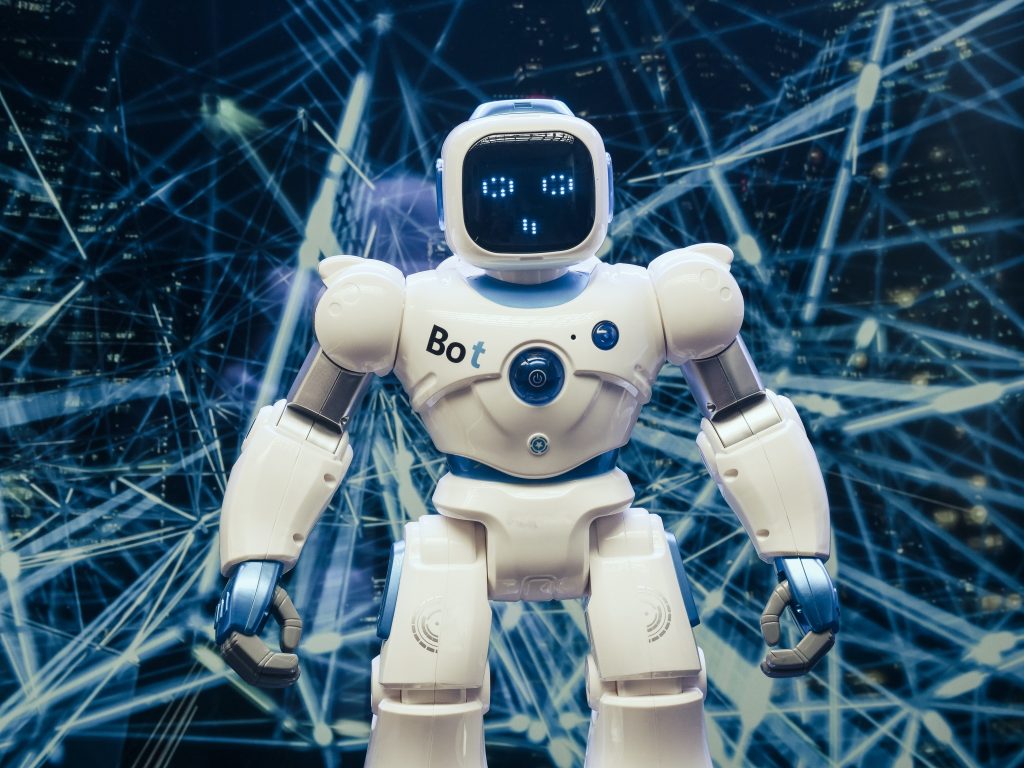
What Can Artificial Intelligence Do?
In the tech industry, one of the most well-known buzzwords is and has always been artificial intelligence.
Everyone, from tech billionaires to scientists and engineers, seems to have a unique perspective on AI’s fantastic capabilities and present constraints. In a culture steeped in AI punditry and hysterical fear-mongering, separating AI fact from AI fiction can be a challenging task.
We at Phrase decided to investigate the present AI landscape by determining what artificial intelligence technology is capable of and what it hasn’t fully mastered.
Here’s what we learned.
What is artificial intelligence (AI)?
Artificial intelligence (AI) is machine-delivered intelligence that mimics human behaviour or thought and may be educated to address specific problems. AI is a combination of deep learning and machine learning techniques. Massive volumes of data were used to train AI systems, which may result in intelligent decisions.
Ten things that AI can do today
1. Read and write
Is one of your objectives to minimise communication in favour of the most crucial elements? Artificially intelligent bots have fulfilled your demand. Artificial intelligence and machine learning algorithms automatically read communications, including news articles, online links, emails, books, legal documents, image files and audio, and more, and report pertinent information.
Did you know that news organisations like The New York Times, Washington Post, Reuters, and others use artificial intelligence in addition to traditional journalists to write? They do, and while this frequently includes formulaic articles that begin with “who, what, where, when, and how,” AI is also capable of writing more creatively.
2. Drive safely around you
Autonomous vehicles are already being tested extensively in big cities and public roadways. Self-driving cars have now travelled millions of kilometres with significantly lower rates of crashes and injuries than human drivers, despite some mishaps that have raised questions about their effectiveness. While there will undoubtedly be more conversations of this nature soon, it is still true that the development of such technologies in recent years has been nothing short of astonishing.
3. Understand what you say
More than 18 million smart speakers are in use in the US alone. The following months and years are expected to increase this number significantly. The relationship between humans and computers is already changing because of gadgets like Google Home and Alexa. Such devices mean a turning point in the development of natural language processing technology, although being far from perfect at this stage (when utilised correctly). They will soon be able to understand what we are saying in its entirety.
4. Smell and AI
Researchers in artificial intelligence are now developing AI models that can identify illnesses simply by smelling a person’s breath. It can detect the “woody, musky aroma” that Parkinson’s disease emits before any other symptoms are recognised, as well as aldehydes associated with human illnesses and stress, such as cancer, diabetes, and brain traumas.
A robot can recognise “supermarket ripe” raspberries using sensors and cameras and can even pick them up and put them in a basket. Its creator claims it can pick a hoot every ten seconds for 20 hours daily! Integrating touch with other senses will be the next step in AI tactile development.
5. Can diagnose cancer
Researchers have only begun investigating AI’s vast potential applications for the medical sector. A study comparing the abilities of 58 dermatologists from 17 different countries with a skin cancer-diagnosing AI tool to differentiate between malignant and benign skin lesions was published earlier this year in the Annals of Oncology. The cancer-detecting AI outperformed its human equivalent in nearly one in ten cases, whereas dermatologists in the study correctly identified the malignant lesions in 86.6% of cases.
6. Can read your mind
It is simply unbelievable that AI is capable of reading your thoughts! It can decipher brain signals and subsequently produce speech. Impressive and transformative for people who have trouble speaking, yet a little disconcerting when you consider the ability’s mind-reading aspect. It’s not unexpected that some of the biggest tech companies, like Facebook and Elon Musk, are developing initiatives to take advantage of AI’s capacity for mind-reading.
7. Can predict your choices
You engage with artificial intelligence when you use Netflix, Spotify, or the “you might also enjoy” section of an e-commerce website. Engines for making recommendations using machine learning are among today’s most widely used AI applications. These engines become more adept at anticipating which offers you might accept as they gather information about your behaviours.
8. Understand emotions and can move
Market research is aided by AI technologies that monitor viewers’ emotions while they watch videos. Artificial emotional intelligence can gather information from a person’s facial expressions, body language, and other behaviours, analyse that information against a database of emotions to determine the most likely expressed sentiment, and then act on that knowledge.
Everything is run by artificial intelligence, including driverless cars, drones, and robots. The Alter 3 production at Tokyo’s New National Theatre features autonomous motion-generating robots.
9 Can book online things
At I/O 2018 this year, Google startled the audience by showcasing their natural language creation platform “Duplex,” which generated waves (and headlines). With recordings of Duplex making reservations for a restaurant and a hair appointment, the demonstration gave a stunning preview of what AI assistants like Google Home, Alexa, and Siri will soon be able to do. Duplex handled challenges like random questions and thick accents with hardly any hesitation.
10. Can compose songs
While there is little doubt that artificial intelligence is changing how popular music is made, human participation is still necessary at this level. Sure, a few barely listenable songs have been created entirely by AI, but “excellent” songs are still out of AI’s reach, at least for the time being.
Final words
Technology is developing at a dizzying pace, although the modern artificial landscape is replete with narratives about its many successes and disasters. Well-designed artificial intelligence tools focused on a particular task are developed daily, and the vast majority can accomplish the tasks given to them exceptionally and successfully.



